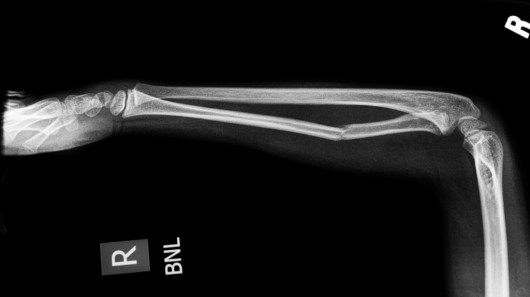
A new material known as 'fracture putty' could be used to help broken bones heal much more quickly than is currently possible (Image: nelgdev)
Anyone who has ever broken a bone knows that while receiving the injury itself is quite unpleasant, being laid up for several weeks to even a few months afterwards is also no picnic. Help may be on the way, however. The U.S. Department of Defense is funding a study, to develop fast bone-healing treatments that could be used on soldiers, along with civilians and even animals. Already, scientists have gotten promising results in laboratory tests, using something they call "fracture putty."
Researchers from the University of Georgia Regenerative Bioscience Center started by obtaining adult rat mesenchymal stem cells, which produce a protein that is part of the bone healing and generation processes. These were incorporated into a gel (the putty) which was subsequently injected into fractures in the bones of those lab rats - the fractured bones were held in place with a stabilizing device. Within two weeks of the injections, the rats were running around and standing up, reportedly showing no signs of injury.
The putty is now being tested in pigs and sheep - already, it has regenerated bone in sheep within less than four weeks. Plans call for subsequent clinical trials at the university's College of Veterinary Medicine. If all goes well, the fracture putty will then be turned over to the Department of Defense for human trials.
"For many young soldiers, their mental health becomes a real issue when they are confined to a bed for three to six months after an injury," said Steve Stice, director of the Regenerative Bioscience Center. "This discovery may allow them to be up and moving as fast as days afterward."
Other institutions involved in the study, that are pursuing other bone-healing techniques, include the Baylor College of Medicine, Rice University and the University of Texas.
Source: University of Georgia via MedicalXpress
Copyright © gizmag 2003 - 2012 To subscribe or visit go to: http://www.gizmag.com